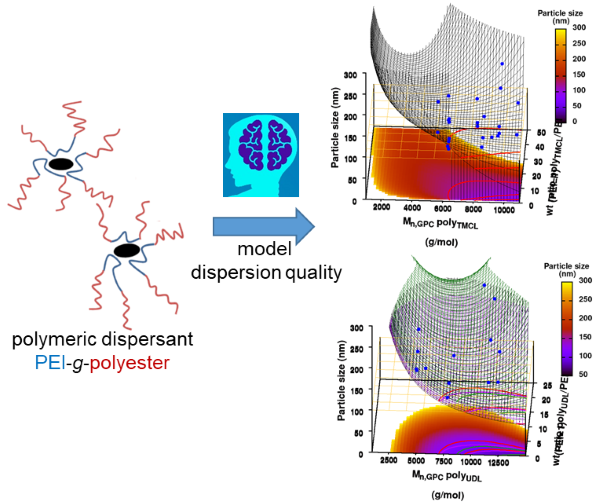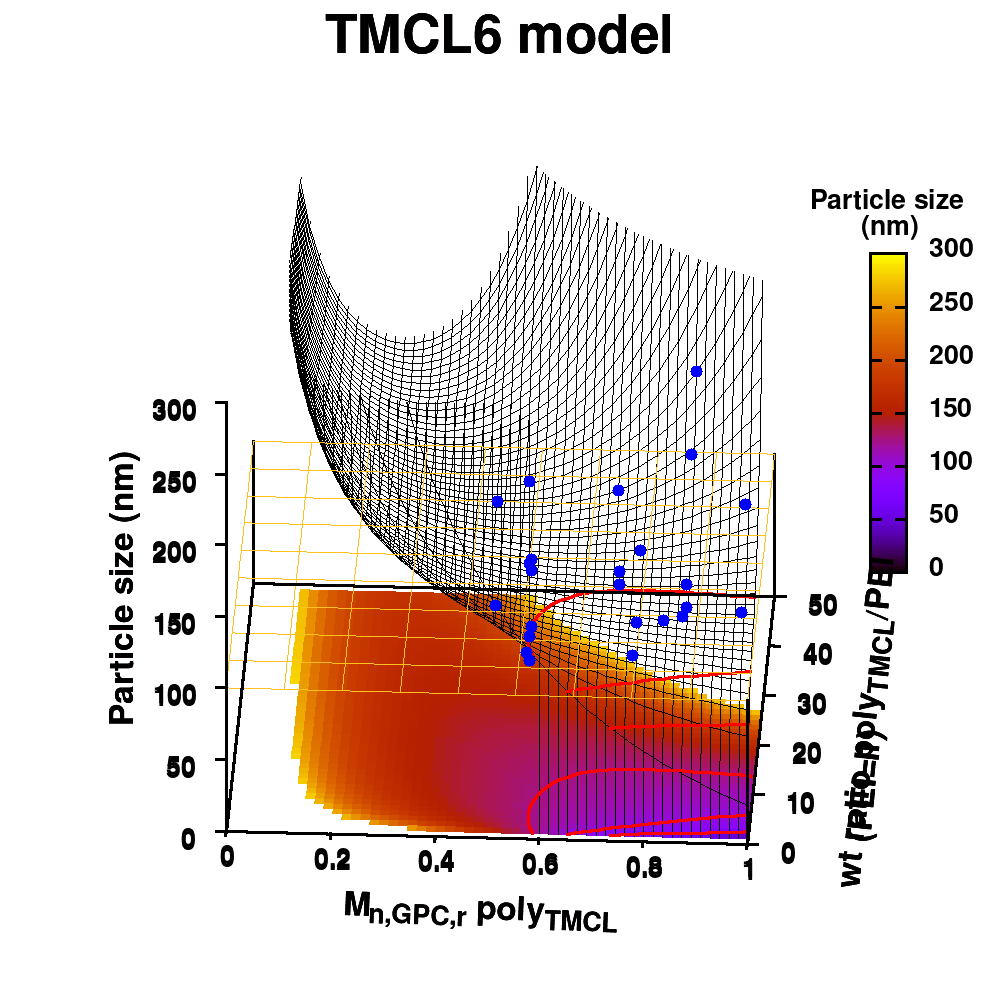| Authors: | Danny E.P. Vanpoucke, Marie A.F. Delgove, Jules Stouten, Jurrie Noordijk, Nils De Vos, Kamiel Matthysen, Geert G.P. Deroover, Siamak Mehrkanoon, and Katrien V. Bernaerts |
| Journal: | Polymer International 71(8), 966-975 (2022) |
| doi: | 10.1002/pi.6378 |
| IF(2021): | 3.213 |
| export: | bibtex |
| pdf: | <PI> (Open Access) (Cover Paper) |
 |
| Graphical Abstract:An ensemble based machine learning model for small datasets was used to predict the relationship between the dispersant structure and the pigment dispersion quality (particle size) for radiation curable formulations. |
Abstract
Polymeric dispersing agents were prepared from aliphatic polyesters consisting of δ-undecalactone (UDL) and β,δ-trimethyl-ε-caprolactones (TMCL) as biobased monomers, which are polymerized in bulk via organocatalysts. Graft copolymers were obtained by coupling of the polyesters to poly(ethylene imine) (PEI) in the bulk without using solvents. Different parameters that influence the performance of the dispersing agents in pigment based UV-curable matrices were investigated: chemistry of the polyester (UDL or TMCL), weight ratio of polyester/PEI, molecular weight of the polyesters and of PEI. The performance of the dispersing agents was modelled using machine learning in order to increase the efficiency of the dispersant design. The resulting models were presented as analytical models for the individual polyesters and the synthesis conditions for optimal performing dispersing agents were indicated as a preference for high molecular weight polyesters and a polyester dependent maximum weight ratio polyester/PEI.

Animation of TMCL model 6

